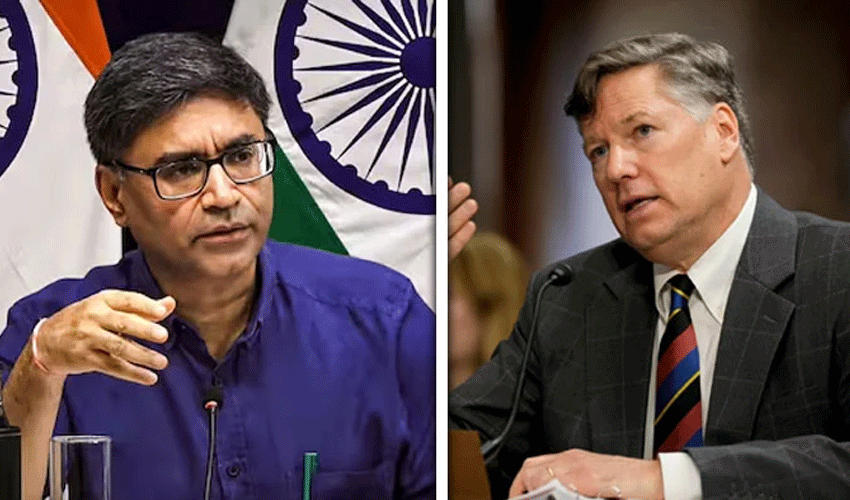The United States has delivered a firm message to India, urging it to refrain from any form of aggression and to uphold regional peace and stability, amidst heightened tensions between New Delhi and Islamabad.
This statement followed a meeting in Washington between Indian Foreign Secretary Shri Vikram Misri and US Deputy Secretary of State Christopher Landau.
According to US State Department spokesperson Tammy Bruce, the two officials discussed bilateral ties as well as the prevailing regional situation in South Asia.
Diplomatic sources indicated that during the meeting, the US expressed concerns over the potential for further escalation between India and Pakistan, emphasizing the importance of restraint and constructive engagement to preserve regional stability.
The meeting took place against the backdrop of events on May 6, when the Indian government accused Pakistan of involvement in the deaths of tourists in Pahalgam, a region within Indian-administered Jammu and Kashmir. Islamabad vehemently rejected these allegations and, in response to what it termed “unprovoked aggression,” Pakistan’s military reportedly downed six Indian aircraft, including a Rafale fighter jet and a surveillance drone.
The US is believed to have played a crucial role in brokering a ceasefire between the two nuclear-armed neighbors following the escalation. While the ceasefire remains in effect, diplomatic observers suggest that provocations from the Indian side continue to pose challenges to long-term stability.
Shri Vikram Misri’s visit to Washington, which commenced on May 27, was part of a three-day diplomatic engagement aimed at strengthening bilateral relations with the US. However, sources suggest that regional security issues dominated the agenda.
In the meeting held on Wednesday evening, Deputy Secretary Landau reaffirmed Washington’s commitment to its strategic partnership with India but underscored that this relationship must not come at the expense of peace in South Asia.
“The United States has consistently urged all parties to exercise restraint and avoid unilateral actions that could destabilize the region,” a diplomatic official familiar with the matter stated.
Deputy Secretary Landau also raised other points of concern and cooperation, including calls for greater market access for American firms, increased collaboration on migration issues, and efforts to curb narcotics trafficking—all of which remain key elements of the evolving US-India bilateral framework.
It has also been reported that the US has maintained backchannel communications with both Islamabad and New Delhi to prevent further escalation and to promote dialogue on contentious issues, including the situation in Kashmir.



